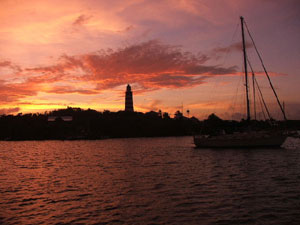
History records that as part of an expedition financed by the King and Queen of Spain, on October 12th 1492 Christopher Columbus, a famous Italian explorer, arrived on the Island of Guanahani, or San Salvador as it is known today. Reputedly named the 'Bajar Mar', meaning shallow seas, by the Spaniards, this archipelago of more than 700 islands is now known as the Commonwealth of the Bahamas.
Lucayan Indians inhabited the magical group of islands when Columbus first discovered them. The Lucayans were related to the neo-Indian Arawaks in the larger Caribbean Islands and had originally migrated from the mainland of South America. Spanish slave traders are said to have captured native Lucayan Indians to work in gold mines in Hispaniola, and in next to no time at all, the Lucayan peoples were wiped out by a combination of slavery and imported diseases against which they had no immunity.
Between the 16th and 17th century the area was regularly plagued by pirates including Henry Morgan, Edward Teach (a.k.a. - Blackbeard) and Calico Jack Rackham. For nearly half a century these murderous pirates, also called buccaneers, raided Spanish galleys in the surrounding seas. In 1695 pirates invaded and destroyed Charles Town on the island of New Providence. However, the city was soon rebuilt to be renamed Nassau. In 1718, King George I of England appointed a former pirate, Captain Woodes Rogers, as the first Royal Governor of the Bahamas. Rogers was credited with eradicating piracy and restoring commerce to the area.
In 1647, a group of English and Bermudan religious refugees, later known as the Eleutheran Adventurers, founded the first permanent European settlement in The Bahamas and gave Eleuthera its name. A succession of governments were founded in the Bahamas by these and other similar groups of settlers until 1717 when the islands officially became a British Crown Colony. It was 1783 before the first settlement in the Abacos was established when six hundred Loyalist refugees fled the newly independent United States and settled at Carleton Point.
The islands are often referred to as the 'Loyalist Isles' due to the numerous Tory expatriates who fled there to avoid persecution following the American Revolution. Picturesque and colorful, these original Loyalist settlements are still very much in evidence on the cays around Great Abaco's major town, Marsh Harbour.
Once the haunt of swash-buckling Privateers, nowadays, the Bahamas is world famous for its tourism, especially sailing and scuba diving. There is a thriving international banking and finance sector as well as the recent emergence of a fast growing real estate business.



